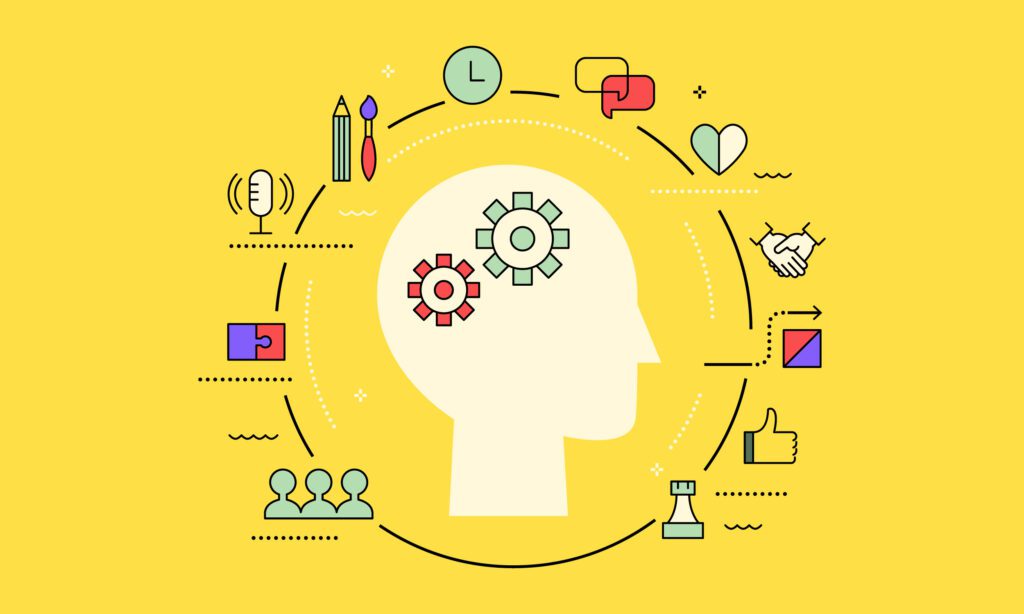Our biases
Many studies have subsequently used the data from the IAT.
One found that 75% of participants associated men with labor market roles and women with family roles. When you look at the data, women made up 47.4% of the Canadian workforce in 2019. It just goes to show that some prejudices take a long time to deconstruct.
Another study, still based on the same data, isolated the results of hiring managers: there was a tendency to favor men in their hiring decisions.
Although it is difficult to assess the impact of our unconscious biases on our workplaces, how can our company leaders begin making more informed and fair decisions? This is the question I asked Normand Côté, Executive Coach, and VP at Optimum Talent. This article summarizes the key points of our discussion.
Authenticity and safe space
Normand raised an important point very early in our interview: awakening leaders and managers to their biases will have little impact if they are not ready to do a genuine conscience analysis.
" It is essential that the leaders I work with are introspective enough to identify elements, patterns, or behaviors not yet recognized. "
Normand Côté
Executive Coach and VP at Optimum Talent
In order to be truly open to self-examination, you first need the right environment. This is why Normand, as an experienced coach, begins his interventions by sharing his own vulnerabilities, whether they are preconceived ideas he has conveyed in the past or soft skills that he seeks to develop. This makes his approach more authentic and aims to make the person with whom he is speaking more relaxed and open to sharing.
During his interventions, Normand uses a method he developed that helps unearth the root of the issue at hand. He first asks the person to determine the nature of his taboos. If they are not labeled outright, the person runs the risk of not recognizing them, and therefore of not admitting to them. After identifying prejudices, they work together to understand the source. Four elements are essential to the success of this exercise:
- Maintaining an open attitude by avoiding judgment or criticism
- Paraphrasing what the person is sharing to show comprehension
- Showing patience and empathy, an exercise that can be very difficult for some
- Remaining aware of non-verbal language
Emotional intelligence: skills to develop
The concept of emotional intelligence is still fairly new. It wasn’t until the 1990s that scientists began taking it more seriously.
There are several models to help us understand our emotional intelligence. The most common are those of Salovey and Mayer, Bar-on, and Goleman. Normand Côté is SuccessFinder certified. The SuccessFinder test, developed expressly for the workplace, offers more precision and nuance than the more popular models.
Using SuccessFinder results, Normand can comprehensively analyze the personality of the leader sitting before him. He can then suggest ways to improve the person’s emotional intelligence, and by extension, his ability to connect and analyze his decisions and detect potential biases. Normand focuses on three traits that can be worked on to boost emotional intelligence.
Intuition
It may seem counterproductive, but by paying close attention to our intuition and reactions, we become more adept at doing the awakening work within ourselves. We connect to our emotions, observe how they manifest internally, and ask questions about why we feel them.
More and more studies in neuroscience indicate that our brains not only interact with but are also affected by, the billions of bacteria in our intestines. The influence of our microbiota can therefore extend far beyond our gut; it could impact our perception of the world and alter our behavior.
Making decisions using our gut-brain is a good way to develop intuition. Start with innocuous decisions, ones with no real consequences if the decisions are wrong. Then, when a decision turns out to be good, our level of confidence increases. The goal is to become more and more attentive to what our gut-brain recommends.
Self-confidence
Working on self-confidence, whether it is strong or weak, is also beneficial.
" During coaching sessions, I notice that some participants are extremely self-confident. A high level of confidence can lead to faster and more clear-cut decisions, but too much self-confidence can also lead to biased decisions "
With the large number of decisions that a business leader has to make every day, the brain has a tendency to take shortcuts. We therefore find ourselves at the mercy of our bias. When possible, taking the time to question ourselves before making an important decision, seeking out relevant data, and consulting with people outside of our inner circle, are all useful ways to protect ourselves from making a decision too quickly.
On the other hand, when Normand interacts with those with lower self-confidence, he notices that they question themselves a lot and feel compelled to verify and cross-verify the data. This questioning slows down decision-making and also confuses colleagues. When a person does not seem convinced of the argument they are making, their team will question the merit of their decisions.
Communication skills
Good communication skills contribute to creating an environment where we feel confident to address potentially taboo topics. Normand recommends 7 key elements to keep in mind in order to improve communication skills:
- Listen with respect, paying full attention to the other person
- Look into the person’s eyes
- Don’t hesitate to ask questions
- Take notes
- Reformulate to show good intentions, and make sure you understand completely
- Take action when you give your word
- Work on your ability to end a conversation
Becoming aware of our prejudices is neither simple nor easy. This exercise could prove unsuccessful if there is a lack of openness, if the process is not genuine, or if it is prompted by others. This is why working on intuition, confidence, and communication skills is essential not only for creating more equitable and inclusive workplaces, but also for effective working relationships, and in turn, better performance.
This article is the second in a series of three, check out our first article on workplace bias here.




